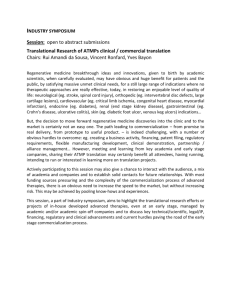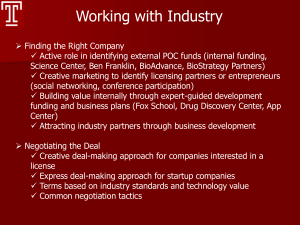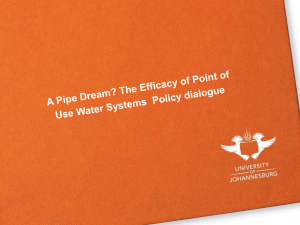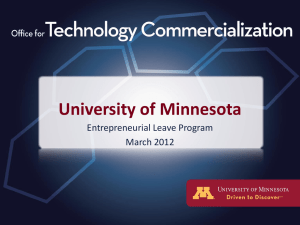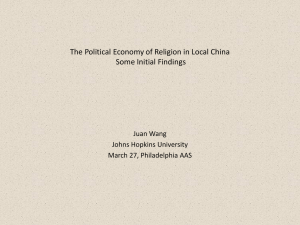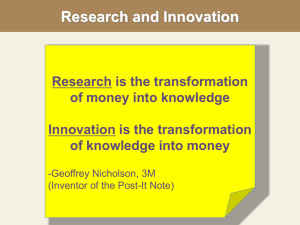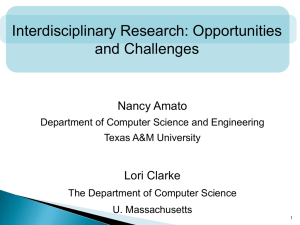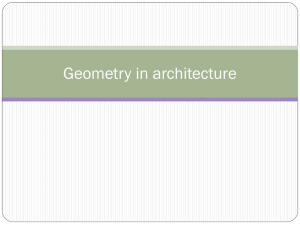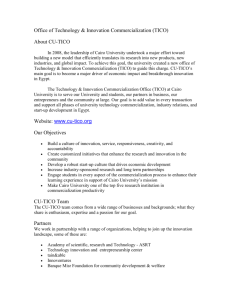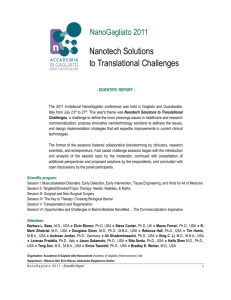a strategic approach to building the research
advertisement
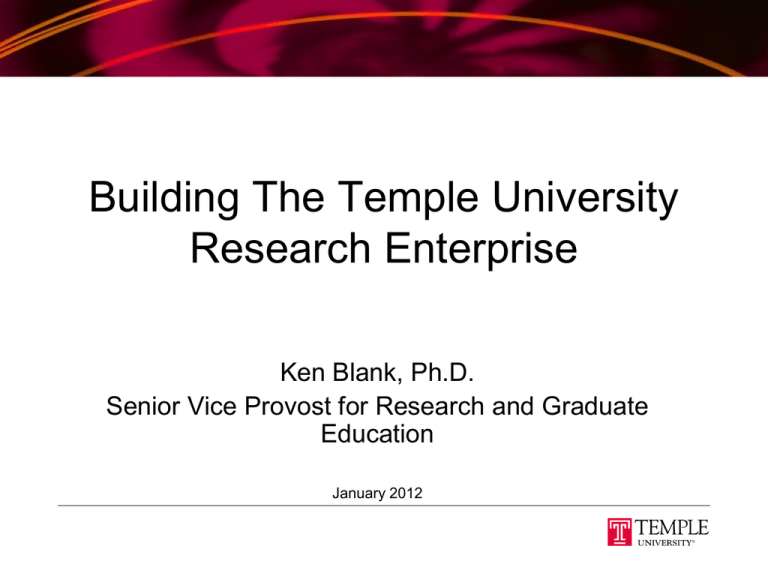
Building The Temple University Research Enterprise Ken Blank, Ph.D. Senior Vice Provost for Research and Graduate Education January 2012 ACADEMIC COMPASS INITIATIVE RESEARCH EXCELLENCE Temple will move aggressively to increase its sponsored research and promote a climate conducive to excellence in research, entrepreneurial activity and creative expression. We will leverage the unique breadth and scope of the expertise of our faculty to generate multidisciplinary research that will improve people’s lives. VISION GLOBAL CHALLENGES, COLLABORATIVE SOLUTIONS Address global and societal challenges through interdisciplinary and translational, use-inspired research. Leverage collaborative and entrepreneurial environment to achieve prominence in interdisciplinary and translational research and in innovations. GOAL DEVELOPMENT OF RESEARCH INITIATIVES Initiatives developed will address important societal problems and provide the academic environment for the education of our students through: • increasing the quality of our already outstanding research programs • increasing extramural research awards and expenditures • increasing the commercialization of Temple’s technology to benefit society PREEMINENCE IN RESEARCH AND RELATED PH.D. PROGRAMS TAKE ADVANTAGE OF EMERGING OPPORTUNITIES AND EXISTING STRENGTHS Continue to develop existing programs and launch new major University-wide research initiatives based on possible thrusts that include: • Drug discovery and development • Healthcare disparities • Water resources • STEM education • Substance abuse • Gene-environment interactions A STRATEGIC APPROACH TO BUILDING THE RESEARCH ENTERPRISE Focus on interdisciplinary, translational research • Fundamental or basic research in science and engineering is the discovery of new knowledge. • Translational research is the process of using these fundamental research discoveries to produce new innovations that may be used to develop new products and processes. A STRATEGIC APPROACH TO BUILDING THE RESEARCH ENTERPRISE Use-inspired research Source: “Pasteur’s Quadrant” by Donald Stokes 1998) A STRATEGIC APPROACH TO BUILDING THE RESEARCH ENTERPRISE (CONT) • Identify research themes E.g. - Water resources • Focus on research thrusts within thematic areas E.g. - sustainability of the water supply • Strategically focus faculty hires, Ph.D. programs, etc • Pursue an active business development strategy with federal agencies and industry to leverage our capabilities to attain a minimum of $3-5M/year in expenditures • Leverage outside partners from other academic institutions, government agencies and industryx A STRATEGIC APPROACH TO BUILDING THE RESEARCH ENTERPRISE (CONT) • Identify strategic programs based on our core competencies with the goal of developing practical solutions to complex societal problems • Build multi-investigator, interdisciplinary teams to implement the strategic initiatives • Continue to identify investment and funding opportunities for: - Facilities: e.g., Medical Education and Research Building, Science Education and Research Building - Shared Instrumentation and Core Facilities: e.g., MRI medical scanners, High Performance Computing, NMR molecular probes. - New research programs STRATEGIC PROGRAMS CRITERIA • The probability that Temple will become a leader in the field in the next five years • The opportunity to integrate research with teaching • The ability to attract outstanding undergraduate and graduate students as well as postdoctoral trainees • The ability to build a distinctive Ph.D. program around the research topic • The ability to attract and retain outstanding faculty • The ability to sustain the program through extramural funding • The possibility of producing intellectual property that will lead to commercialization A STRATEGIC APPROACH TO TECHNOLOGY COMMERCIALIZATION • Technology commercialization office will actively work with faculty to identify promising technologies and fully develop the invention disclosure • Faculty will be guided in the commercialization pathway for their technology (Fox School of Business and Management, Ben Franklin Partners, Bioadvance, UCSC) and funding streams developed to result in advanced stage technologies with increased value • Licensing to New Companies with experienced management with the objective of rapidly monitizing equity OUTCOMES • Increased interdisciplinary research and education • Identification of Temple as a major national comprehensive research university • Increased revenues from grants and contracts through diversification of the research portfolio • Increased technology commercialization contributing to economic development at the local, state and national level METRICS • New awards and research expenditures from externally funded sponsored projects • Papers published in peer reviewed journals • Scholarly books published • Ph.D. students graduated and where they obtain positions • Intellectual property (IP) disclosures, patents issued and licensing revenue PATHWAY TO CONTINUED SUCCESS • Hire new tenure track and research faculty strategically to support programmatic growth • Develop leadership capability of faculty to lead major programs and submit large proposals • Recruit senior faculty • Develop strategic industry and government agency relationships • Diversify external funding sources (NIH and NSF budgets will not increase anytime soon)
